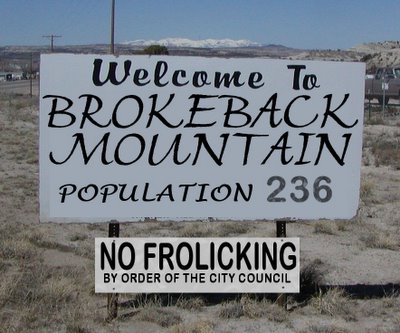The only thing that surprises me about the lawsuit against author Dan Brown, by the authors of
Holy Blood, Holy Grail, is that it didn't happen a long time ago.
I read HBHG some 15 years ago, and found it a very entertaining book. The thesis of the book - that a secret organization named the Priory of Sion is guarding an eye-popping secret about the bloodline of Jesus Christ himself - has been long exposed as a hoax. The hoaxster himself, a Frenchman named
Pierre Plantard, later repudiated the book. Its warped reasoning was satirized in Umberto Eco's novel
Foucault's Pendulum. Still, it's a fun book.
Unlike
The Da Vinci Code. Apparently only UK reviewers have the gonads to criticize this lead turkey, while my own benighted countrymen invariably begin with, "Whatever you think of his ideas, Dan Brown has written a first-rate thriller!" Yeah, and Stephen King is Dostoevsky.
There are writers who
show you things, and writers who
tell you things. Dan Brown is a most unfortunate example of a writer who
tells you things. And he is so anxious to tell you things that he interrupts action and narrative to do so. It is unclear who is doing the telling: the main character, or the omniscient author. Whoever is doing the telling, they do not bother to explain the New Age jargon they use. (I can't understand how anyone who is not familiar with feminist "myth-makers" like Barbara Walker can even make an iota of sense out of
The Da Vinci Code.) Finally, the little lectures that pop up on every other page are filled with the most outrageous absurdities, including all the stuff about Leonardo Da Vinci, most of which is dead wrong.
The only good thing about The Da Vinci Code is the unintentionally hilarious stuff, beginning with Robert Langdon, a professor of "Symbology". Of course there is no such academic discipline, not even at Ann Arbor. A
symbology is actually a protocol for the creation of algorithms that can be read by a machine. The best known example of a symbology is the common bar code (a supermarket scanner is a "symbology reader"). So Langdon is like a Professor of Bar Codes. A novel about a bar code expert ("The Da Vinci Bar Code") might be pretty good, but Brown is too lame and humorless to write it.
What really amazed me about
The Da Vinci Code, though, is that someone would copy (in very close detail) the thesis of
Holy Blood, Holy Grail and present it as original fiction - apparently oblivious to the fact that the whole thing had been blown wide open more than a decade ago. Brown even plants clues to HBHG in the text (there is a character named Teabing, which is an anagram of HBHG author Biagent) that his lawyers are probably regretting right now.
There is an interesting question in this: Does the fact that HBHG's authors presented their work as historical fact entitle other authors to treat it as such? I'm no lawyer, but I'm pretty confident that historical fact can't be copyrighted. Of course the "history" in HBHG is the product of the authors' imagination, but does the fact that they believe it to be true undercut their intellectual property rights?
Frankly, I couldn't care less. I hope Brown, Biagent, and Leigh all go broke from legal fees, and make huge asses out of themselves in public while doing so.
What really annoys me - and what has annoyed me since I read HBHG, fun as it was - is that the sick fantasies of a deranged Frenchman (a Vichy, an anti-Christian, and an anti-Semite) have survived so long. They are soon to become a major motion picture starring Tom Hanks. The resemblance of "The Priory of Sion" to the Elders of Zion is no accident, and was part of Plantard's explicit intention. We now have another
Protocols on our hands, and like the other one it will never die.




